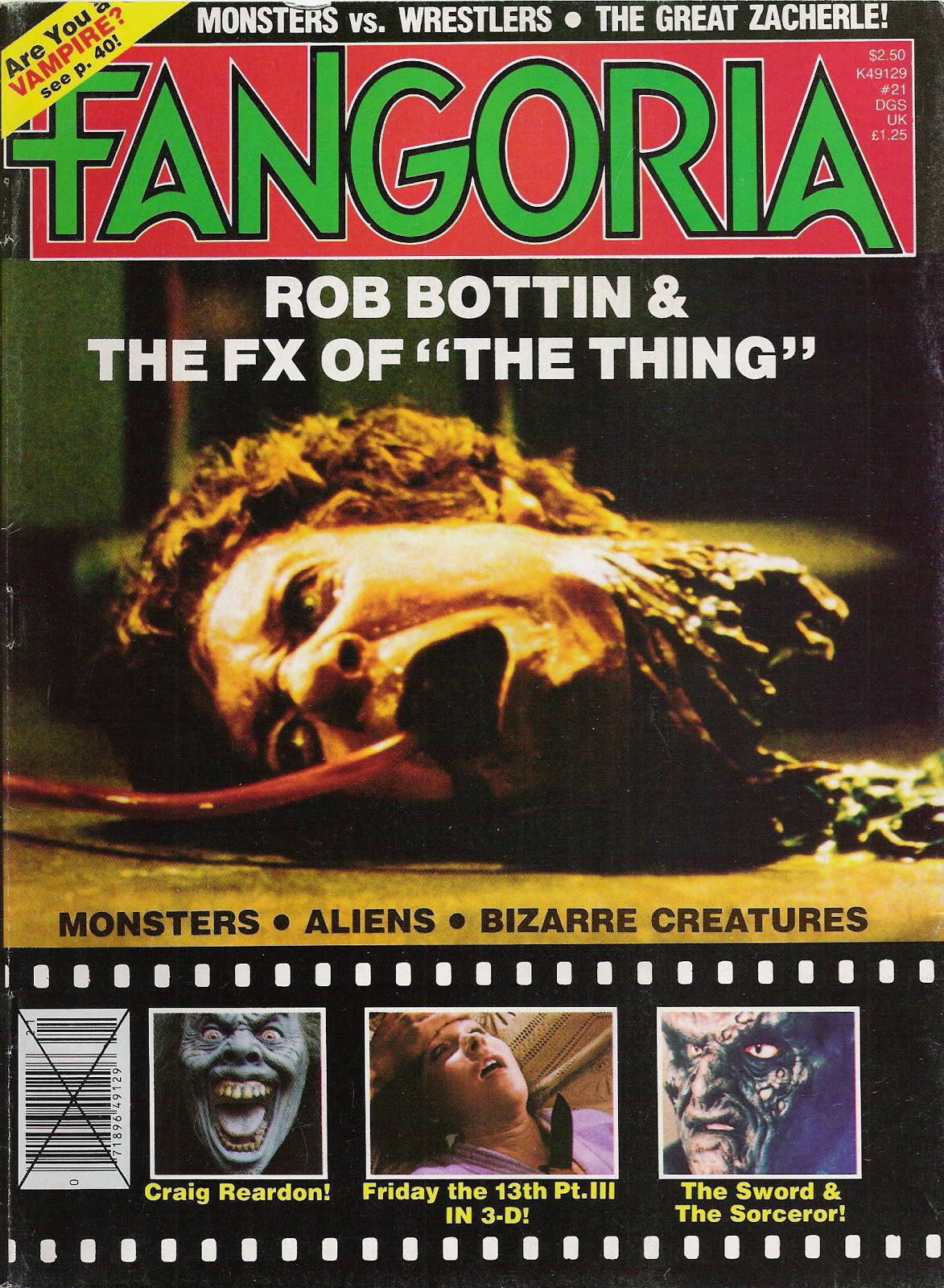 Love it or hate it, Fangoria is one of the most enduring publications in the horror medium. I say this as one who grew up with the magazine and revered it for many years. Recently, however, I’ve come to view Fangoria as one might a delinquent teenager–a teen you desperately hope will cease his troublemaking ways and return to the upstanding individual he once was, even though you can’t help but conclude that his course is set…and that course is not a happy one!
Love it or hate it, Fangoria is one of the most enduring publications in the horror medium. I say this as one who grew up with the magazine and revered it for many years. Recently, however, I’ve come to view Fangoria as one might a delinquent teenager–a teen you desperately hope will cease his troublemaking ways and return to the upstanding individual he once was, even though you can’t help but conclude that his course is set…and that course is not a happy one!
For me the beginning of the end for Fangoria came in February of 2010. At that time there occurred a corporate shakeup, the precise cause and details of which have never been made public, that resulted in Fango abruptly dumping its Sirius radio program and severing its ties with the popular Weekend of Horrors conventions (although that may actually have occurred earlier), as well as the abrupt replacement of longtime editor Tony Timpone.
The significance of that last factor cannot be overstated. Timpone edited Fangoria since 1987, and was largely responsible for elevating it from the dimly regarded “sister publication” of Starlog to the iconic brand name it became. Horror fans tend to speak wistfully of Fangoria’s days under the watch of its original editor Bob Martin, and while it’s true that Martin’s Fangoria had a funkier, more individual vibe than Timpone’s, it suffered from a lack of thematic focus: was it a horror, fantasy or horror-fantasy themed mag? Under Timpone there was no such confusion, even if his touch was more impersonal and corporate-oriented.
That’s all over with now, in any event, with Fangoria currently charting an even more impersonal course. This change has been in the works since 2008, when Creative Group, Fangoria’s parent company, was sold to the Brooklyn Company. The magazine’s drift toward insanely high cover prices and a reliance on glossy design over good writing were certainly evident before 2008, but it was after the ownership change that things really went south.
It was in ‘08 that I began hearing complaints about non-payment from Fango contributors, which only intensified over the following two years. The anger reached a fever pitch by the time of the 2010 shake-up, as evinced by a February ‘10 tweet from writer Alan Jones: “I’ve had just about enough of Fangoria, not paying their bills, not being honest with their writers, got to do something…” Jones followed that tweet two days later with another stating “So it looks like its over for Fangoria.” (For the record, I’ve been assured that since then “Almost all of” Fango’s debts have been paid off.)
I was inclined to agree with that latter statement, especially in light of the inflated cover price and the Fango website’s constant format changes. Yet somehow Fangoria has hung on for a year and a half following the February ‘10 shake-up, a lot longer than I thought it could.
How is it doing? Surprisingly, my feelings on Fango’s latest issue (#306) are mixed–surprising because I was counting on being entirely under whelmed. The writing could be a bit stronger overall, and the whole thing looks very Rue Morgue-ish (and no surprise, as the new editor Chris Alexander was a regular Rue Morgue contributor). Yet there are some worthy features, namely a good interview with Spanish filmmaker Augusti Villaronga about his 1987 masterpiece IN A GLASS CAGE (conducted by Funeral Party‘s Shade Rupe), as well as solid articles on ATTACK THE BLOCK and DON’T BE AFRAID OF THE DARK.
The Fangoria website has even calmed down somewhat, at least since the constant format changes that have plagued the site in recent years. I didn’t say the site was perfect, mind you: it’s overly chaotic in its organization, clogged up with ads and has at least one section (the Fangoria Forums) that’s still “undergoing maintenance.” There’s also a mighty telling query asking readers if they’d pay to see an ad-free site.
Charging for the Fango website? That seems a pretty ballsy–and greedy–move in light of the mag’s current $10 cover fee. Clearly the once-mighty Fangoria is definitely down, even if it isn’t quite out.
